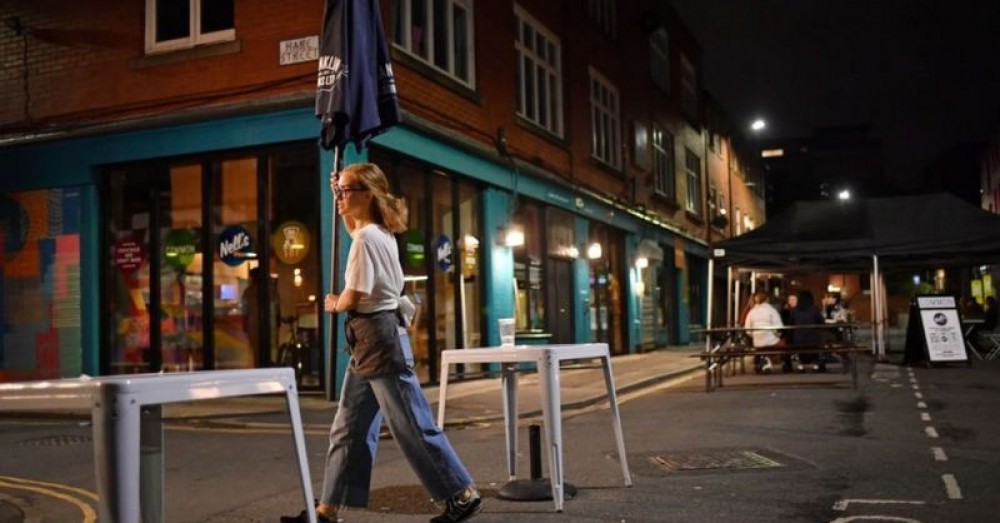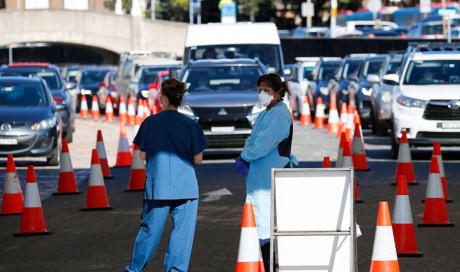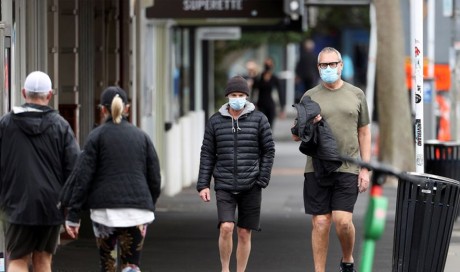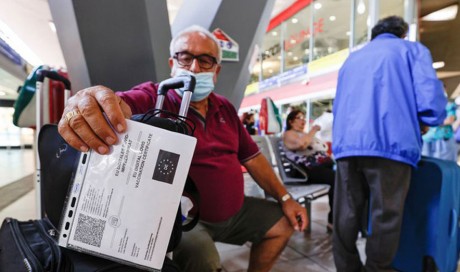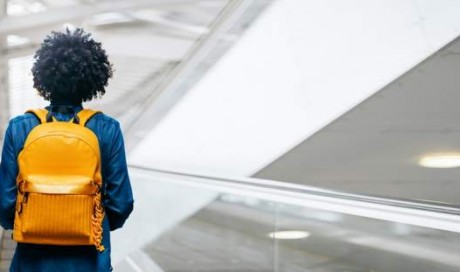Stricter coronavirus rules are coming into force for nearly six million Britons on Friday.
Greater Manchester's population of 2.8 million joined Liverpool City Region and Lancashire in England's highest tier of restrictions at midnight.
And from 18:00 BST, the 3.1 million people in Wales will have to stay at home as a 17-day national "firebreak" lockdown begins.
The UK recorded another 189 deaths and 21,242 new confirmed cases on Thursday.
South Yorkshire will also move into tier three restrictions from 00:01 on Saturday, bringing the total number of people living under England's tightest rules to more than seven million.
The tier three, "very high", alert level means pubs and bars will be closed - unless they are serving substantial meals - along with casinos, bingo halls, betting shops and soft play centres.
Households are banned from mixing outdoors in private gardens or anywhere inside and people are advised against travelling into or out of the area.
In addition, rising infections mean that Coventry, Stoke and Slough will move into tier two restrictions at 00:01 on Saturday.
The "high" alert level means households are banned from mixing indoors and people are encouraged to reduce their use of public transport.
Talks between the government and local leaders in Nottingham and Warrington over introducing tier three restrictions are also due to take place.
In Wales, the "firebreak" means people are being ordered to stay at home and pubs, restaurants, hotels and non-essential shops will close until 9 November.
Supermarkets have been told not to sell items such as clothes, as First Minister Mark Drakeford said it would be "made clear" they should only open the parts of their business that sell essential goods.
And the Scottish government is to set out its own tiered alert system of Covid restrictions, which will come into force from 2 November.
First Minister Nicola Sturgeon said it would have five tiers, with the middle tiers corresponding roughly to England's three, plus a lower tier that is "the closest to normality" possible without a vaccine.
She said an additional top tier would be "closer to a full lockdown" - and was added because England's chief medical officer had acknowledged tier three restrictions were not necessarily enough to reduce infections in all circumstances.
The move in Greater Manchester comes after days of confrontation between local politicians and ministers over the level of financial support the area would receive.
After the "very high" alert level was imposed, the government announced a more generous wage subsidy scheme, backdated to August, for areas that have been under additional restrictions.
Shadow chancellor Anneliese Dodds says ministers need to be clearer about how they decide what financial support areas will get and how long this will be for.
"Initially it was suggested there was some kind of a negotiation going on between government and local areas about support for businesses," she told BBC Radio 4's Today programme.
"Now it looks like actually there's a formula that's being used by government but they haven't published it anywhere, they've not discussed it, it hasn't been voted on for government."
Meanwhile, employers are believed to have defrauded the taxpayer of up to £3.9bn by misusing the furlough scheme, which supported more than 9.6 million workers in the first wave of the pandemic.
It comes as Spain's Canary Islands, Denmark, the Maldives and the Greek island of Mykonos were added to the UK government's list of countries that are exempt from quarantine rules.
Visitors returning from those places will no longer need to quarantine for 14 days on their return.
Share This Post

